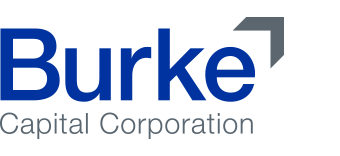The Call
A prominent investment banker calls Burke Capital Corporation (BCC) in a panic. His longtime client, an Internet clothing retailer, is about to lose its main supplier because it is out of cash and nearly insolvent. The retailer just made an emergency cash advance to cover payroll. This is a bold move, but if the retailer runs out of product, it would hurt its well-established brand. BCC quickly arranges a meeting with the banker and company’s CEO to explore options.
Don’t Throw the Baby Out with the Bath Water
Since the CEO previously ran a clothing manufacturing company, he is comfortable with the supplier’s operations. The problem is the supplier amassed too much debt which jeopardized its going-concern value. The CEO feels that adding manufacturing capabilities to his company’s skill set could be very positive, but he doesn’t want to bail out the supplier’s past mistakes and assume its huge list of creditors. BCC coaches the investment banker and CEO on ways they could acquire the manufacturing company without taking on the liability baggage.
Consider the Alternatives
Here are six ways to acquire a company in distress without taking on the overhanging liabilities
1. Bill of Sale. The simplest and cheapest transaction handled directly between the seller and buyer. Requires no notice or third parties, but we recommend sending creditors a letter of explanation. Offers little protection to the buyer, which may be exposed to irate creditors. In some cases, unsecured creditors can subsequently file an involuntary Chapter 11 to try to revoke the process.
2. “Friendly” Foreclosure. Requires the Newco buy the secured creditor’s note and then foreclose on the note’s collateral. Needs legal review. Can be arranged within a few days, does not require a third party or advance notice to unsecured creditors. Provides a good story to tell creditors, “the lender foreclosed and took all the assets”. Less likely to be challenged.
3. Workout Agreement. Requires a creditor agreement, which means holding a creditor’s meeting and soliciting a voluntary written approval of the transaction by the creditors. May take time and requires near unanimous consent. Not a likely approach when creditors are being offered close to zero.
4. Assignment for the Benefit of Creditors (ABC). Borrower selects an independent third-party “assignee” and transfers all its assets (General Assignment). The assignee then sells the assets to the highest bidder. The proceeds are divided among the creditors, according to the priority established by the bankruptcy code (i.e., administrative claims, secured, unsecured, etc.). If the assignee has conducted due diligence and feels an offer from Newco is the highest and best offer, it will accept the Newco offer and close the deal, allowing Newco immediate possession of the assets. All creditors will be notified of the transaction after the fact, and will be allowed time (60 days) to submit claims.
5 & 6. Chapters 7 & 11. Greatest expense, most complicated and time-consuming, but provides the greatest protection for the buyer.
The Transaction
The investment banker and CEO felt an ABC was the best way to go. It offered a positive economic alternative to Chapter 11, could be completed with minimal impact to employees, and provided adequate protection for Newco. But, the fact the manufacturing company was in the Southeast presented a slight twist to the situation. BCC, through its Integrated Expert Network (IEN), was able to find competent local counsel. The procedures were slightly different than those of California in that a court filing was required. This did not create a major problem in closing the transaction promptly.
Acquisition Closed
It took less than 30 days to complete the ABC process. Now the Internet retailer controls its supply chain and can grow with confidence. The moral of the story: if you come upon a tangled situation that requires out-of-the box thinking, call the professionals at Burke Capital Corporation.



